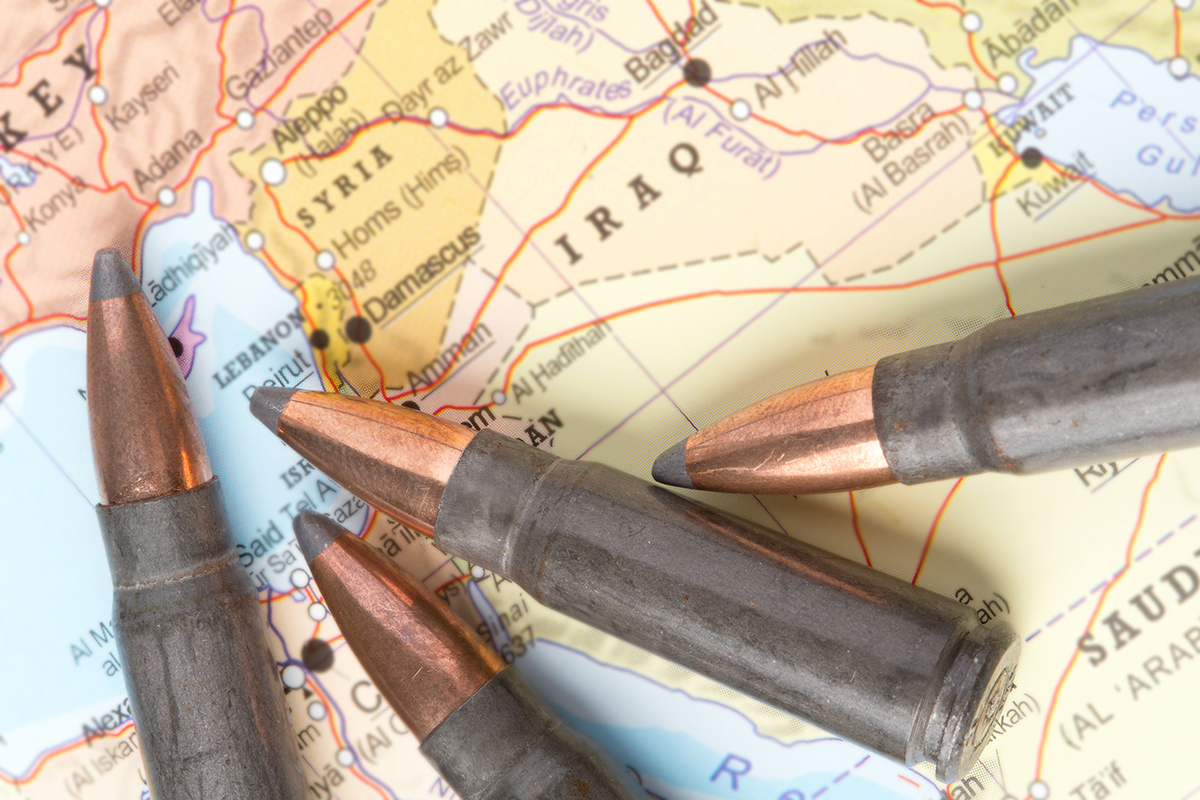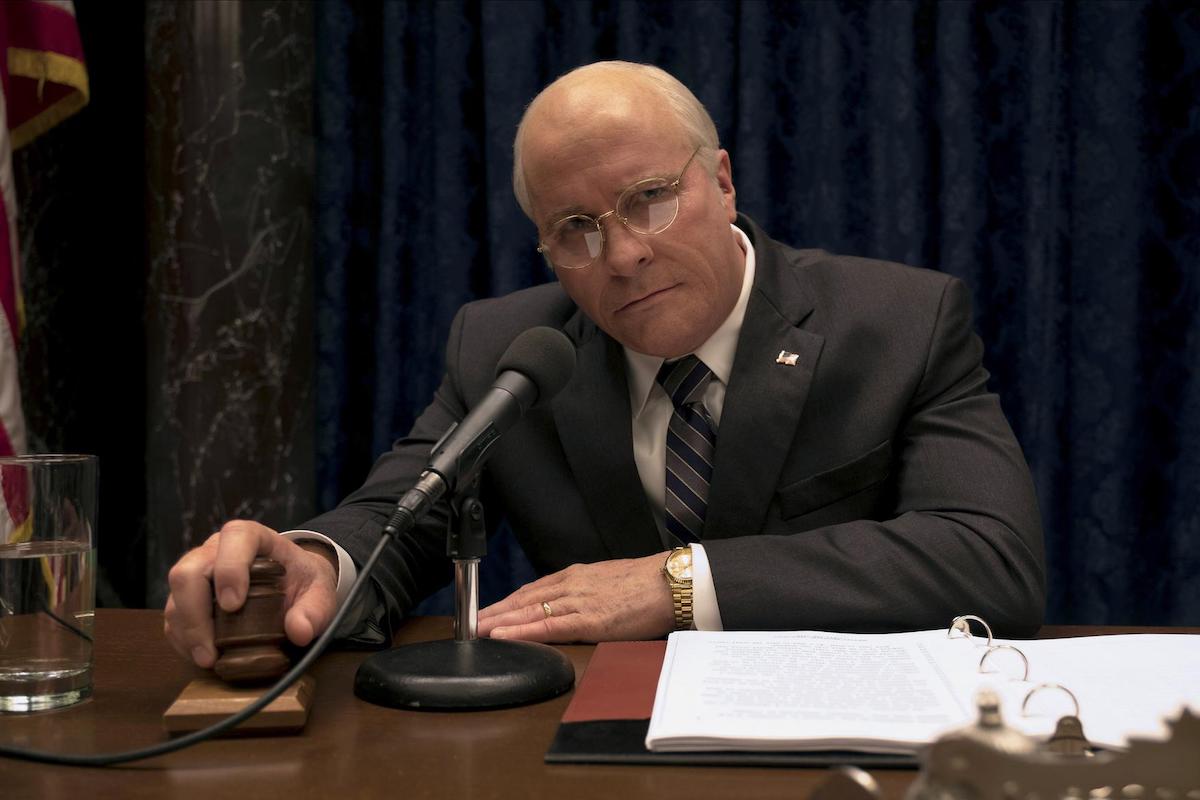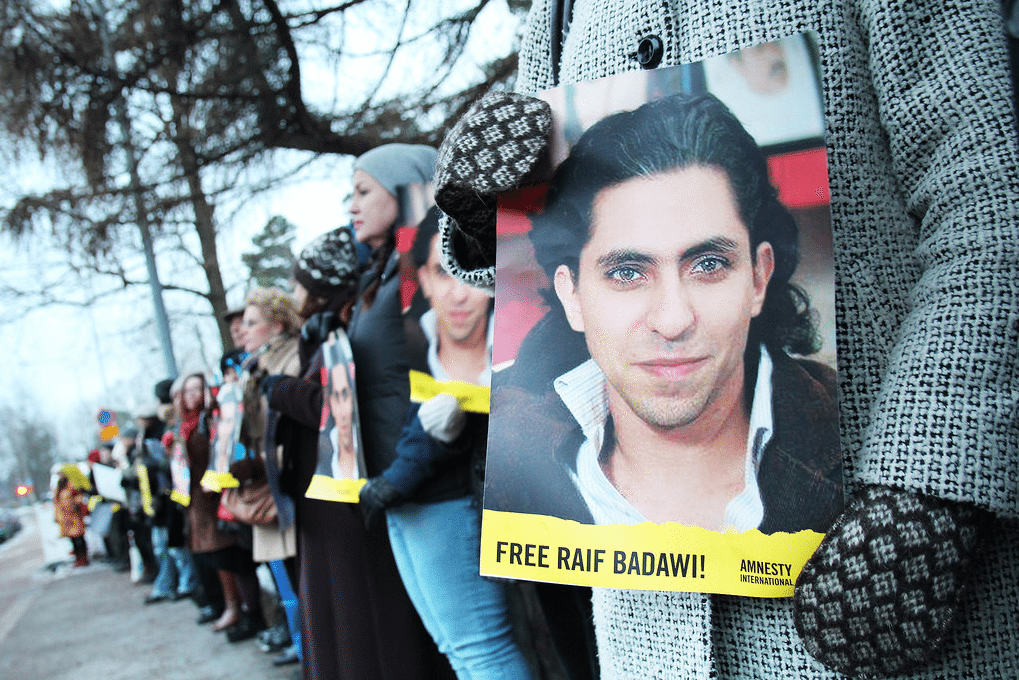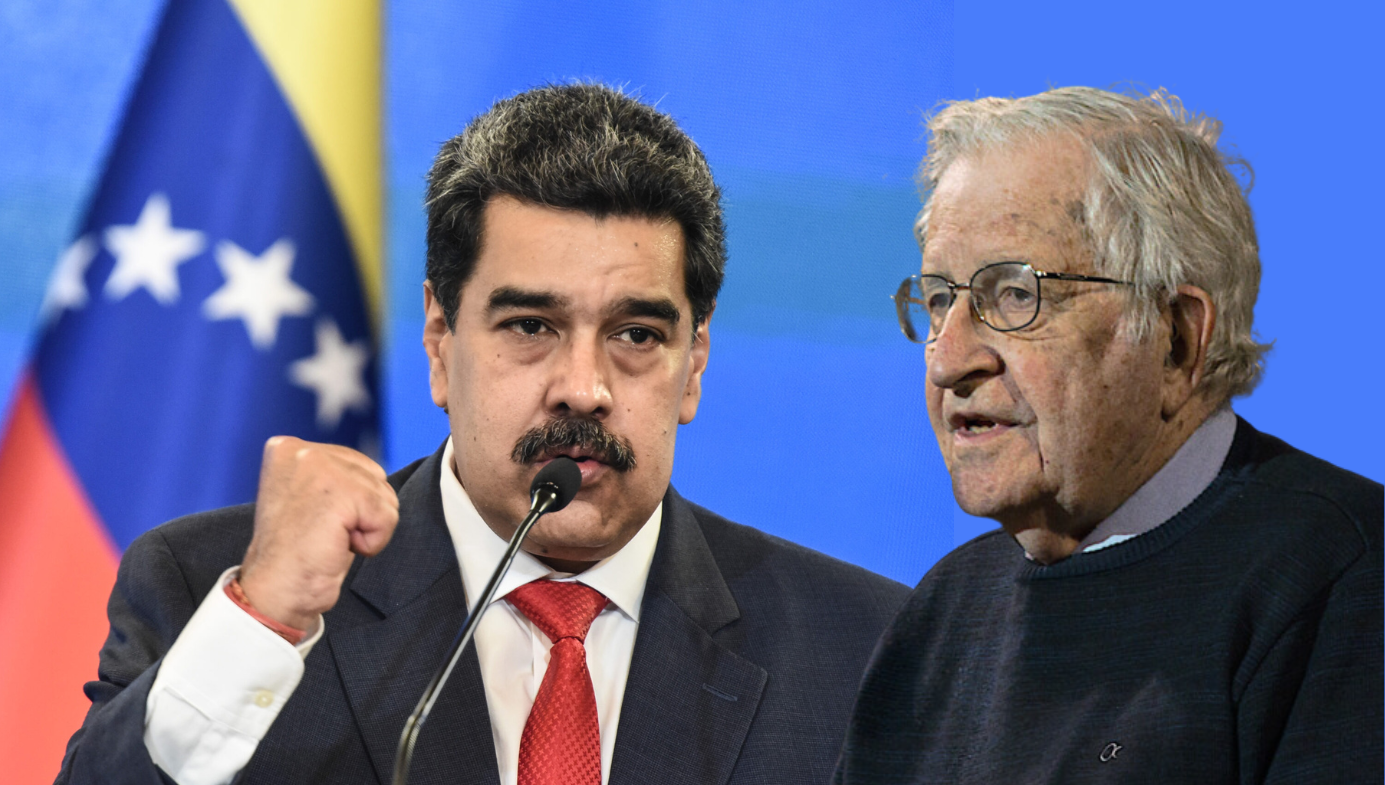foreign policy
The Iraq War Was Not About Oil
American oil companies didn’t want to topple Saddam Hussein; they wanted to trade with him.

Why did the U.S.-led coalition attack Iraq in 2003? Sixteen years after George W. Bush’s “Mission Accomplished” speech, the answer seems obvious to some: oil of course! When war was waged, this was the widespread view in Jordan (71 percent), Morocco (63 percent), Pakistan (54 percent), Turkey (64 percent), Germany (60 percent) and France (58 percent). After all, the U.S. was the largest oil-consuming nation and Iraq had the second-largest oil reserves in the world. These suspicions are strengthened when we consider how the White House was being run by retired oil executives—Cheney, Condoleezza Rice and Bush himself. However, closer examination suggests these factors were a coincidence rather than a conspiracy. The Iraq War was not fought for oil.

Big Oil, Sanctions and Saddam
American oil companies didn’t want to topple Saddam Hussein; they wanted to trade with him. They were prevented from doing so, not by the regime but by the U.S.’s full support for the U.N.’s oil embargo that was imposed on Iraq when it invaded Kuwait in 1990. In 1997, Conoco’s CEO Archie Dunham complained that “U.S. companies, not rogue regimes, are the ones that suffer when the United States imposes economic sanctions.” Halliburton found itself in hot water after whistle-blowers alleged that it had sidestepped sanctions by operating through foreign subsidiaries.
In 1997, 670 companies and trade associations came together to form USA Engage, a lobbying coalition with the explicit aim of campaigning against the sanctions. The organisation was chaired by a Halliburton executive, Don Deline, and after him by Exxon-Mobil’s Manager of International Relations, Robert W. Haines. Although it could be argued that war represented an alternative avenue for Big Oil to get inside Iraq, it was certainly not their preferred path.
Since the State Department, the CIA, the Army War College’s Strategic Studies Institute and the Pentagon’s Energy Infrastructure Planning Group all eerily predicted post-war chaos and looting, it is difficult to discern why war would be a sensible, money-making strategy for Big Oil. There was the additional fear that Iraqi forces would set fire to the oil fields in revenge as they beat a retreat. Why risk the destruction and devastation of the treasure? A deal would surely be more desirable?
With American troops building up on the border in March 2003, Saddam made a desperate attempt to cling on to power. His secret service sought out American-Lebanese businessman Imad Hage, who acted as an intermediary, meeting influential White House-advisor Richard Perle. Hage reported that in return for the regime’s survival, ”the U.S. will be given first priority as it relates to Iraq oil.” The offer was rejected.
The situation is best summarized by the Nobel Prize-winning economist Gary S. Becker: “If oil were the driving force behind the Bush Administration’s hard line on Iraq, avoiding war would be the most appropriate policy.”
Iraqi Democracy
It is often considered laughable and ludicrous to claim the U.S. and U.K. cared about bringing democracy to Iraq, given their historical record in the region. On countless occasions, oil interests have trumped human rights. The Kingdom of Saudi Arabia is an absolute monarchy, with an archaic attitude to women that holds public beheadings and sponsors Islamic terrorism, but where is the outcry or intervention? Since 1945, oil has flowed and arms have been sold, fostering a close connection between the U.S. and Saudi Arabia.
Nevertheless, the “war for oil” thesis makes even less sense in this context. Given that Saudi Arabia (alongside all the other oil-rich Gulf states with the exception of Kuwait) opposed the war, invading Iraq risked future deals. Leading war proponent and U.S. Deputy Secretary of Defense Paul Wolfowitz was reported to be “more than pleased” that democracy in Iraq would make the Saudis uneasy and was supportive of “rocking the stability of tyrannies in the Arab world.” Such antagonism was antithetical to the interests of Shell and Exxon-Mobil who had made huge investments in the Kingdom’s natural gas.

Cosying up to dictators is not the only reason the motives of the U.S. and U.K. have come under suspicion. It’s also their remarkable double standards and duplicity when it comes to supporting democracy. Iran’s Mohammed Mossadegh was democratically elected but was deposed in a CIA/MI6-backed coup in 1953 after he nationalised the Anglo-Persian oil company (now BP). He was replaced by the Shah who suppressed opposition while guaranteeing Anglo-American business interests.
Although parallels have been drawn between the Iranian incident and the Iraq invasion, this comparison not only ignores the coup’s Cold War context but it equates the overthrow of democracy and installation of a dictatorship with the overthrow of dictatorship and installation of a democracy. Both the Saudi monarchy and the Shah show that Big Oil’s profits are often better protected by a despotism that keeps its people down while passing on money to the West. If an appetite for Iraq’s oil fields was what drove U.S. policy then why not replace Saddam with a compliant strongman who could be controlled? Why insist on elections that would put the power to shape the Iraqi oil industry into the hands of the Iraqi people?
After the fall of Baghdad in April 2003, no major oil company could even consider investing in Iraq. While an unstable underdeveloped country may hand over its resources to multinationals because it’s desperate for investment, the risk is that once a country recovers its government will reject what it sees as an unfair deal. This is known as the Obsolescing Model in international trade. Since elections were not scheduled until December 2005 and a permanent government would not be formed until May 2006, Big Oil would have to wait three years before its representatives could bargain with a government that would be considered sovereign. Only this could allow them to sign contracts that would be protected under international law.
An additional problem Iraq’s parliamentary system posed to the creation of conditions favorable to outside oil companies was legislation from the 1960s that stated any oilfield development contract would have to be approved by a specific new law passed in the Iraqi parliament, potentially stalling or torpedoing new deals.
An even bigger blow to the stability required for a smooth oil agreement was when the December elections in 2005 delivered a decisive defeat for the secular pro-U.S. elements (such as the INA) and a huge victory for Shia Islamist parties, in the form of the United Iraq Alliance (UIA). This group had links to the Islamic Republic of Iran, arch enemy of the U.S. It also included the Sadr Current, the political wing of the Mahdi Army, which had engaged in attacks on Coalition forces. The dominant group was the Da’wah Party, whose founding philosophy forbids the private ownership of oil. From 2005 to 2018, three of Iraq’s four elected prime ministers, al-Jaafari, al-Maliki and al-Abadi, have been drawn from Da’wah.
By 2007, Iraq’s parliament was debating the direction of the oil industry. A plan was put forward to “promote foreign investment and private sector development” of Iraq’s oil, gas and electricity, known as the Hydrocarbon Law. However, this infuriated Iraqis and united them across class, region and religion.
Previously outlawed unions were able to organise oil workers, strike and issue statements declaring that “privatization of oil is a red line that may not be crossed.” The Association of Muslim Scholars (possibly Iraq’s most influential Sunni group) used their new-found free speech to issue a fatwaagainst the plans, outlining how “oil is the common property of the ummah.” Four hundred and nineteen members of Iraq’s intelligentsia, including diplomats, doctors, engineers, former ministers and lawyers, expressed opposition by signing a petition. Iraqi parliamentarians responded to concerns of their constituents by opposing the proposals.
Ultimately, the post-Saddam order, which gave birth to a thriving democracy and civil society, was a far cry from a playground for foreign oil companies or the “client state” resource colony Noam Chomsky accused the U.S. of invading Iraq to create.

The Spoils of War
The attitudes and actions of oil industry figures to the free-for-all that followed the fall of Baghdad could be cited to infer that they were the hidden hand behind the waging of war after all. Former policy director of BP, Nick Butler, penned an article in the Financial Times: “Perhaps the most useful parting gift that the Coalition could leave… is a practical model for renewal of the oil sector.” Shell employed a special advisor to work on a production and exploration strategy for Iraq from 2004–08. Halliburton won a two-year technical services agreement with the U.S. Army Corps of Engineers.
Nevertheless, simply because oil companies sought to take advantage of the situation and cash-in on the chaos (as any business would), doesn’t mean that they were the war’s orchestrators or that the war was fought on their behalf. As Larry Goldstein, president of the Petroleum Industry Research Foundation, said: “If we go to war, it’s not about oil. But the day the war ends, it has everything to do with oil.” In the years before oil companies could sign a binding agreement, they tried to win the favour of the Iraqi Oil Ministry by researching reservoirs and training engineers and specialists. Shell and ChevronTexaco provided such services for free. Such efforts were referred to as “snuggling up” in the Petroleum Economist. Did this pay off?
The preferred path for foreign oil company investment in Iraq was through Production Sharing Agreements (PSAs). To make a healthy return against the enormous capital costs of setting up shop (rigs, pipelines, storage tanks and drilling operations etc.), rather than compensating the state for the oil they take, PSAs label companies as “contractors’ and the state compensates them for the costs of operation. Such agreements generally last between 25 to 40 years, fixing their economic and legal terms. This would insulate investors from Iraq’s dire security situation and protect profits well beyond the withdrawal of troops.
PSAs have been palatable to the Kurdistan Regional Authority. By 2008, they had signed almost 20, the first of which was signed by Hunt Oil—a mid-sized Dallas-based oil company. Ray Hunt, the company’s CEO, is a close associate of George W. Bush. Despite this, such deals have been declared illegal by the Iraqi government. Similarly, although ExxonMobil signed contracts with the Authority, Iraq’s former oil minister said this was a “serious error.” In 2017, the Iraqi army seized Kurdistan’s oil fields, putting any agreements in legal limbo. The region was previously producing around 200,000 barrels per day, which would rank it 10th among the largest oil sovereigns in the world if it was a country. Surely, it would be in the American oil industry’s interests to have an independent Kurdistan? Consistently, the U.S. has supported a unified Iraq.
While the Iraqi people and parliamentarians would have probably preferred 70s-style total nationalisation, the government reportedly and reluctantly conceded that they simply did not have the money ($35-40 billion) to expand oil production. They would have to rely on private sector potential. In two auctions in 2009, oil companies were permitted to “bid” for contracts. However, PSAs were taken off the table. Part of the profitability of PSAs is if the price of oil increases or the cost of production declines, the company gets a share of the increased profits. Instead, what was on offer were fixed fees on each barrel produced, with margins of $1-2 dollar per barrel. This was hardly a bonanza.
What’s more, companies were not given preferential treatment in virtue of their country’s involvement in Saddam’s overthrow. Indeed, companies from nations that were neutral or hostile to the war were given an equal footing to negotiate a price for the prize.
Despite the presence of 200,000 U.S. troops and mercenaries, and despite the American taxpayer subsidising the war to the tune of $1 trillion at this point, only one U.S. company (Exxon-Mobil) walked away with a contract. Such “winnings” were no more impressive than the deals done by Russia’s Lukoil, Norway’s Statoil, Malaysia’s Petronas or Japan’s Japex. Were the bids any better for the Brits? Shell won the development rights of the billion-barrel Majnoon near Basra but this was a joint venture with Petronas. Similarly, BP was only able to secure a successful bid by partnering with the Chinese CNPC. The poor profitability of such deals is demonstrated by how Shell has since sold its stakes and Exxon-Mobil has allegedly sought to do the same.
The biggest beneficiary of the post-war contracts has been China, emerging as the largest buyer of Iraqi oil in 2013. The state-run China National Petroleum Company was awarded the first post-war oil license, the lion’s share of contracts at the auctions and has since acquired additional contracts with the Ministry of Oil. The absurdity of the “war for oil” argument was best articulated by Michael Makovsky, a former Defense Department official in the Bush administration. “The Chinese had nothing to do with the war but from an economic standpoint they are benefitting from it, and our Fifth Fleet and air forces are helping to assure their supply,” he said.
The U.S. and U.K. are Colonial Powers No Longer
Great powers of the past have been driven by resource control, whether that be Indian spices, African slaves or, indeed, Middle Eastern oil. However, trying to claim that the U.S. or Britain in the 21st century is somehow colonial simply doesn’t stand up to scrutiny. Despite the fact that Afghanistan is sitting on $1 trillion dollars worth of rare minerals, the young democracy has also been free to sign extraction agreements with China. Gaddafi already had dealings with BP, yet the West toppled the dictator despite the disruption it caused the company. Donald Trump was a key observer of such developments, decrying in 2011 that “we should be running the oil” in Iraq but “unfortunately Bush didn’t have that in mind.”
While the Iraq War has done little to fuel the profits of American and British oil companies, it has fuelled the conspiracy that Bush and Blair told lies, and hundreds of thousands died, in a vulture capitalist venture. This interpretation of events, which still enjoys widespread currency, has polluted public discourse and sown seeds of distrust, damaging our democracies. Defenders and detractors of the 2003 decision alike should acknowledge that the “blood for oil” narrative is a selective and speculative account.






